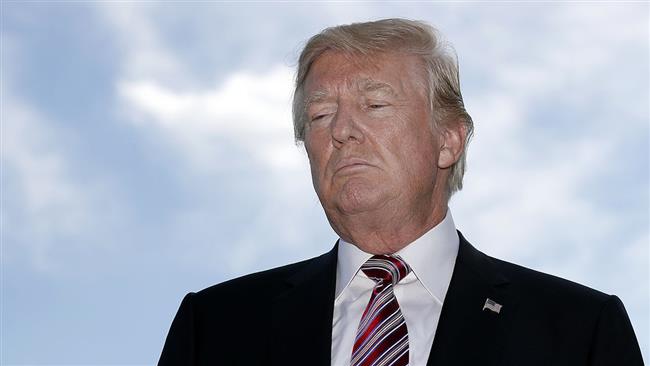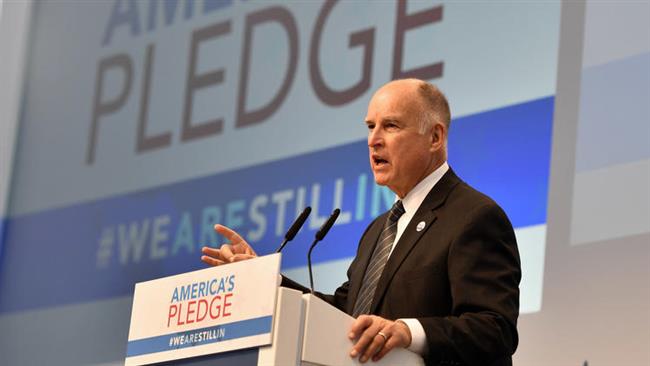House passes bill to keep US in Paris climate accord
The US House of Representatives has passed legislation that would prevent President Donald Trump from withdrawing Washington from the Paris climate accord.
The Democratic-controlled House on Thursday voted 231 to 190 to pass the act. But the Republican-led Senate is not likely to approve the measure, which would bar federal funds from being used to pull out from the accord.
House Speaker Nancy Pelosi said the legislation was a step in the right direction, and called climate action a moral, economic and national security "imperative.”
"It sends a signal to the world that the US isn't in denial about the overwhelming science about climate," she said on the House floor.
She, however, acknowledged that the Senate is highly unlikely to support it.
In June 2017, Trump announced that he was pulling out of the 2015 global agreement to fight climate change, characterizing the decision as "a reassertion of American sovereignty."
The move drew rebuke from Democrats at home and world leaders who had pressed Trump not to abandon the 197-nation accord.
He argued that remaining in the deal would hurt the US economy. Trump cannot formally leave the deal until a day after the 2020 election.
Trump considers climate change a hoax
Trump had vowed during the election campaign to "cancel" the Paris agreement within 100 days of becoming president on January 20, 2017 in order to bolster the US oil and coal giants, which bankrolled his campaign.
Trump has labeled climate change a hoax, defying widening international support for the Paris agreement to cut greenhouse gas emissions. He has argued that the concept of global warming has been “created by and for the Chinese in order to make US manufacturing non-competitive.”
Environmental groups have long argued against spending billions of dollars to reduce emissions from coal-fired power plants when the same funds could help expedite the transition to wind and solar power.
The Paris agreement was reached on November 4, 2016 and has been signed by 197 countries. 135 of them have now formally ratified the agreement. They represent more than 75 percent of global greenhouse gas emissions.
The Paris agreement seeks to avert climate change by limiting global warming to no more than 2 degrees Celsius (3.6 degrees Fahrenheit) above pre-industrial temperatures by 2050. It also sets out a goal of reaching a limit of 1.5 degrees Celsius, if possible.
The adopted text acknowledges that the risks of climate change are much more serious than previously thought. The deal is to take effect in 2020.

Students camp out at Yale to protest Israeli minister Ben-Gvir’s visit

Over 220 US academic leaders slam Trump crackdown on universities

After second Signalgate scandal, Democrats call for Hegseth’s resignation
China supports Iran-US indirect talks, defends Tehran's nuclear right
VIDEO | Gaza’s dire conditions hit unprecedented levels
VIDEO | Press TV's news headlines
VIDEO | Pakistan’s business and cultural front unites for Gaza: Nationwide shutdown, boycott announced
US jets carry out more aggression against Yemen
Syrian militants enslaving Alawite women in Idlib governorate: Report
VIDEO | US pro-Palestinian campus protest
VIDEO | Palestinian civil defense rejects Israel’s probe and exposes the crime















 This makes it easy to access the Press TV website
This makes it easy to access the Press TV website